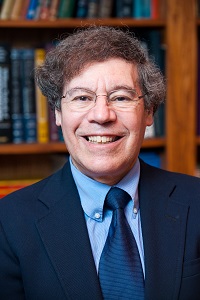GHUCCTS Executive Committee
Executive Committee (EC) is comprised of the leaders of the clinical and translational research programs at the GHUCCTS affiliated institutions (MHRI, ORNL and WDCVAMC), and supplemented by component directors on an as needed basis as decisions regarding their respective domains require being addressed. The Executive Committee, in collaboration with the Principal Investigators, oversee the implementation of GHUCCTS programs across the entire GHUCCTS network. By virtue of their leadership roles at their respective institutions, the regular EC members is ideally situated to monitor progress of GHUCCTS activities at their respective institutions and to provide advice to the PIs about potential problems with implementation of GHUCTS initiatives at each institution as well as expedite their implementation. The rotating inclusion of component directors allows for more focused deliberation on topics that relate to specific component functions. The EC meet monthly directly following the monthly Steering Committee (SC) meetings to discuss which action items from that larger meeting need to be addressed and with what priority.
Members:
 Marjorie C. Gondré-Lewis, Ph.D., Co-Principal Investigator (Howard University) is Professor of Neuroscience at Howard University, Director of the NeuroPsychoPharmacology Laboratory, and Associate Dean for Faculty Development, and Justice Equity Diversity and Inclusion (JEDI) for the College of Medicine. She is the Howard MPI of the Georgetown-Howard Universities Center for Clinical and Translational Science (GHUCCTS).
Marjorie C. Gondré-Lewis, Ph.D., Co-Principal Investigator (Howard University) is Professor of Neuroscience at Howard University, Director of the NeuroPsychoPharmacology Laboratory, and Associate Dean for Faculty Development, and Justice Equity Diversity and Inclusion (JEDI) for the College of Medicine. She is the Howard MPI of the Georgetown-Howard Universities Center for Clinical and Translational Science (GHUCCTS).
Dr. Gondré-Lewis’ research focuses on mechanisms of addiction in people with substance use disorder (SUD) and on identifying functional neuroanatomical correlates of SUD and co-morbid HIV. Her clinical translational work is guided by consideration for ethnicity-based genetic/biological variations, and socioeconomic determinants of (mental) health that influence health care outcomes and scientific interpretations of data. Her research has received continuous federal funding and she has published dozens of primary research articles, as well as numerous reviews, and book chapters. In 2023, she was featured in Neuron.
In her GHUCCTS leadership role, she embraces the unique co-equal partnership of Howard University and its Historically Black Medical College (HBMC), with Georgetown University to enhance the clinical translational landscape in the entire region. Our focus is to enhance the reach of the national CTSA goals to have a tangible impact on the lives of everyone, especially people who are underrepresented. Dr. Gondré-Lewis has received several accolades for her work in the community, as a teacher, and for mentorship.
 Thomas A. Mellman, MD, Co-Principal Investigator (Howard University) is Professor of Psychiatry and Director of the Center for Clinical and Translational Research and Stress/Sleep Studies Program at Howard University College of Medicine. He is the principal investigator representing Howard for the Georgetown Howard Universities Center for Clinical and Translational Science supported by a Clinical Translational Science Award from NIH. He received training at the NIMH Division of Intramural Research Programs and has previously held faculty appointments and achieved the rank of Professor at the University of Miami and Dartmouth. Dr. Mellman has had continuous funding as PI on federal research grants since 1991 including a VA Merit award, and R01, R21, R34 and K24 awards from NIMH, NHLBI, NIMHD, and the DOD. His primary research interests have been the role of sleep in posttraumatic stress disorder (PTSD) and the role of sleep in the effects of stress on physical and emotional health. He has a consistent track record of mentoring junior investigators and interdisciplinary collaboration. He recently finished service as a member of the NIH study section for Mechanisms of Emotion Stress and Health, was previously a member of NIMH IRGs for Violence and Traumatic Stress and Interventions, and has served on several review committees for the NIH Roadmap and Department of Defense research programs. Dr. Mellman was a member of the original ISTSS committee for developing treatment guidelines for PTSD, APA committee for text revision of the DSM-IV, and the Institute of Medicine Committee for review of the evidence regarding the treatment of PTSD. He received the International Society for Traumatic Stress Studies distinguished mentorship award for 2016.
Thomas A. Mellman, MD, Co-Principal Investigator (Howard University) is Professor of Psychiatry and Director of the Center for Clinical and Translational Research and Stress/Sleep Studies Program at Howard University College of Medicine. He is the principal investigator representing Howard for the Georgetown Howard Universities Center for Clinical and Translational Science supported by a Clinical Translational Science Award from NIH. He received training at the NIMH Division of Intramural Research Programs and has previously held faculty appointments and achieved the rank of Professor at the University of Miami and Dartmouth. Dr. Mellman has had continuous funding as PI on federal research grants since 1991 including a VA Merit award, and R01, R21, R34 and K24 awards from NIMH, NHLBI, NIMHD, and the DOD. His primary research interests have been the role of sleep in posttraumatic stress disorder (PTSD) and the role of sleep in the effects of stress on physical and emotional health. He has a consistent track record of mentoring junior investigators and interdisciplinary collaboration. He recently finished service as a member of the NIH study section for Mechanisms of Emotion Stress and Health, was previously a member of NIMH IRGs for Violence and Traumatic Stress and Interventions, and has served on several review committees for the NIH Roadmap and Department of Defense research programs. Dr. Mellman was a member of the original ISTSS committee for developing treatment guidelines for PTSD, APA committee for text revision of the DSM-IV, and the Institute of Medicine Committee for review of the evidence regarding the treatment of PTSD. He received the International Society for Traumatic Stress Studies distinguished mentorship award for 2016.
Neil Weissman, MD (MedStar Health Research Institute) is the President of MedStar Research Institute and Professor of Medicine at Georgetown University School of Medicine. Dr. Weissman is an internationally recognized expert in cardiovascular ultrasound. He has published hundreds of peer-reviewed papers, is the editor of a textbook on cardiac imaging, is national PI for several multi-center clinical trials involving thousands of patients, and has served as the imaging core lab for over 100 international multi-center device or pharmacologic trials. Dr Weissman currently directs the Ultrasound Core Laboratories at the Cardiovascular Research Institute at Washington Hospital Center in Washington, DC, and holds leadership positions in the American College of Cardiology (Governor for District of Columbia) and the American Society of Echocardiography (upcoming Chair, Scientific Sessions).
 Marc R. Blackman, MD (Washington DC Veterans Affairs Medical Center) was recently appointed Associate Chief of Staff for Research and Development (ACOS R&D). His mission as ACOS R&D is to facilitate and expand the clinical, translational and laboratory based research Dr. Blackman was previously Chief of the Division of Endocrinology and Metabolism and Program Director of the NIH-funded General Clinical Research Center (GCRC) at the Johns Hopkins Bayview Medical Center and a Guest Researcher at the NIA’s Gerontology Research Center. Subsequently he was Chief, Endocrine Section, Laboratory of Clinical Investigation, and Division of Intramural Research, at the National Center on Complementary and Alternative Medicine (NCCAM), NIH. He has provided service on multiple national committees and advisory boards. His research has focused upon the effects of age-associated alterations in the growth hormone and gonadal steroid axes on body composition, and endocrine-metabolic, cardiovascular, immunologic, musculoskeletal, and psychobehavioral functions in healthy and frail older persons.
Marc R. Blackman, MD (Washington DC Veterans Affairs Medical Center) was recently appointed Associate Chief of Staff for Research and Development (ACOS R&D). His mission as ACOS R&D is to facilitate and expand the clinical, translational and laboratory based research Dr. Blackman was previously Chief of the Division of Endocrinology and Metabolism and Program Director of the NIH-funded General Clinical Research Center (GCRC) at the Johns Hopkins Bayview Medical Center and a Guest Researcher at the NIA’s Gerontology Research Center. Subsequently he was Chief, Endocrine Section, Laboratory of Clinical Investigation, and Division of Intramural Research, at the National Center on Complementary and Alternative Medicine (NCCAM), NIH. He has provided service on multiple national committees and advisory boards. His research has focused upon the effects of age-associated alterations in the growth hormone and gonadal steroid axes on body composition, and endocrine-metabolic, cardiovascular, immunologic, musculoskeletal, and psychobehavioral functions in healthy and frail older persons.
 Jason G. Umans, MD, PhD (KL2 Program Director) is Associate Professor at Georgetown University Department of Medicine, Program Director, RETCD and KL2 cores of GHUCCTS, and Scientific Director, Biomarker, Biochemistry and Biorepository Core at MHRI. He is a pharmacologist and physician, with particular clinical interests in medical disorders during pregnancy and cardiovascular, metabolic, and renal disease in American Indian and Alaska Native populations.
Jason G. Umans, MD, PhD (KL2 Program Director) is Associate Professor at Georgetown University Department of Medicine, Program Director, RETCD and KL2 cores of GHUCCTS, and Scientific Director, Biomarker, Biochemistry and Biorepository Core at MHRI. He is a pharmacologist and physician, with particular clinical interests in medical disorders during pregnancy and cardiovascular, metabolic, and renal disease in American Indian and Alaska Native populations.
Dr. Umans led a multi-institutional NCRR-supported K30 program (which included Children’s National Medical Center and George Washington University as well as our GHUCCTS institutions), including development of courses, curricula, and evaluation metrics. As well, he was PI of a T32 program in nephrology and hypertension and co-led a T32 in clinical pharmacology. He currently directs the GHUCCTS RETCD and KL2 programs, including our MS and graduate certificate programs and has overseen an expansion of our curriculum to include degree tracks on regulatory science and on health disparities and community engaged research. Dr. Umans also co-directs the education and training component of the NIMHD-supported Center of Excellence on Health Disparities in the Nation’s Capital and the new doctoral program track in Translational Biomedical Science at Georgetown.
 Kathryn Sandberg, PhD (TL1 Program Director) is the founding director of the Georgetown University Center for the Study of Sex Differences in Health, Aging and Disease. She is also a tenured Professor and Vice Chair for Research in the Department of Medicine at Georgetown University and Director of the Training Program in Translational Biomedical Science at GHUCCTS. Dr. Sandberg has published extensively on the molecular physiology of the renin angiotensin system especially regarding the impact of gonadal hormones and sex chromosomes on the pathophysiology of hypertension and associated vascular and renal disease. She has been continuously funded by the National Institutes of Health for more than 20 years and she has been honored for her research with a Distinguished Scientist Award from the Washington Academy of Sciences, an Established Investigator Award from the American Heart Association, the Harriet Duston Award from the Council for High Blood Pressure Research and the Ernest H. Starling Distinguished Lectureship Award from the American Physiological Society.
Kathryn Sandberg, PhD (TL1 Program Director) is the founding director of the Georgetown University Center for the Study of Sex Differences in Health, Aging and Disease. She is also a tenured Professor and Vice Chair for Research in the Department of Medicine at Georgetown University and Director of the Training Program in Translational Biomedical Science at GHUCCTS. Dr. Sandberg has published extensively on the molecular physiology of the renin angiotensin system especially regarding the impact of gonadal hormones and sex chromosomes on the pathophysiology of hypertension and associated vascular and renal disease. She has been continuously funded by the National Institutes of Health for more than 20 years and she has been honored for her research with a Distinguished Scientist Award from the Washington Academy of Sciences, an Established Investigator Award from the American Heart Association, the Harriet Duston Award from the Council for High Blood Pressure Research and the Ernest H. Starling Distinguished Lectureship Award from the American Physiological Society.
Dr. Sandberg has served in leadership roles in various scientific organizations including as the founding President of the Organization for the Study of Sex Differences, President of Women in Nephrology, and President of the Society for Experimental Biology and Medicine, DC Chapter. She chaired the American Physiological Society Awards Committee as well as peer review committees for the American Heart Association, the National Kidney Foundation and the National Institutes of Health. She was the Founding Chair of the Gordon Conference on Ligand Recognition and the elected chair of the 2012 Gordon Research Conference on Angiotensin. Dr. Sandberg served as Associate Editor for Gender Medicine and was the North American Editor for Cell Biology International and Section Editor for Sex-based biology in the Journal of Women’s Health. She currently serves on the Hypertension and the American Journal of Physiology-Renal editorial boards among others.